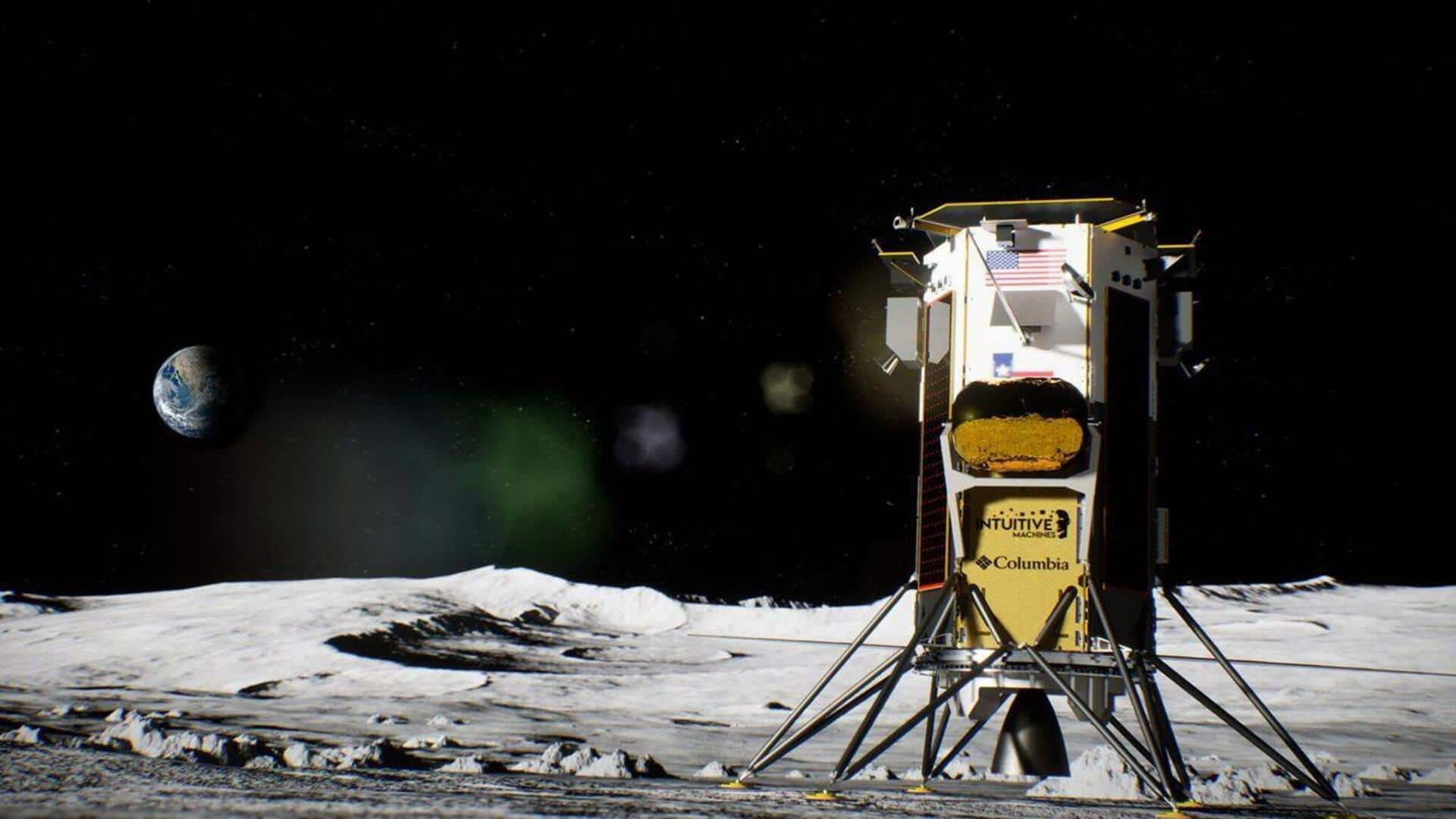
US Odysseus Moon mission faces early shutdown: Here's why
What's the story
The Odysseus lunar lander, a collaboration between private firm Intuitive Machines and NASA, is set to conclude its mission earlier than expected due to a power issue. During its descent last week, the lander tipped over, causing problems with its solar panels. As a result, Intuitive Machines predicts that communication with the lander will be lost today, shortening the mission from its original plan of a week or more to just five days on the Moon.
Obstacles in journey
Limited solar panel exposure and communication challenges
The lander's tilt has limited the solar panels' exposure to sunlight, which will soon cause a power outage. Additionally, two antennae are facing the ground, obstructing communication with the lander. Intuitive Machines stated in an update, "Based on Earth and Moon positioning, we believe flight controllers will continue to communicate with Odysseus until Tuesday morning."
Pre-launch scenario
Laser range finder failure and sideways landing
Mike Hansen, head of navigation systems at Intuitive Machines, disclosed that the company opted not to test-fire the laser-guided range finders before launch to save time and money during pre-flight checks at NASA's Kennedy Space Center. The decision led to an in-flight failure of the range finders, which were rendered inoperable by a safety switch that was not unlocked before launch. It is still unclear whether this issue contributed to the spacecraft's sideways landing.
Data loss
Impact on scientific data collection
The amount of scientific data lost due to the shortened mission is uncertain. NASA had previously estimated that the payloads on board would operate for seven to 10 days. Last week, Intuitive Machines reported that some instruments were functioning and gathering data. However, the company's engineering teams are still evaluating the overall impact on the mission.
Shares declined
Intuitive Machines's stock plunges amid mission complications
Intuitive Machines's shares dropped 35% on Monday following the announcement of the early end to the Odysseus mission. Despite its difficulties, Odysseus became the first US spacecraft to land on the Moon since NASA's last crewed Apollo mission in 1972. It was also the first lunar landing by a privately-built and operated space vehicle and the first under NASA's Artemis program, which will send astronauts to the Moon this decade.